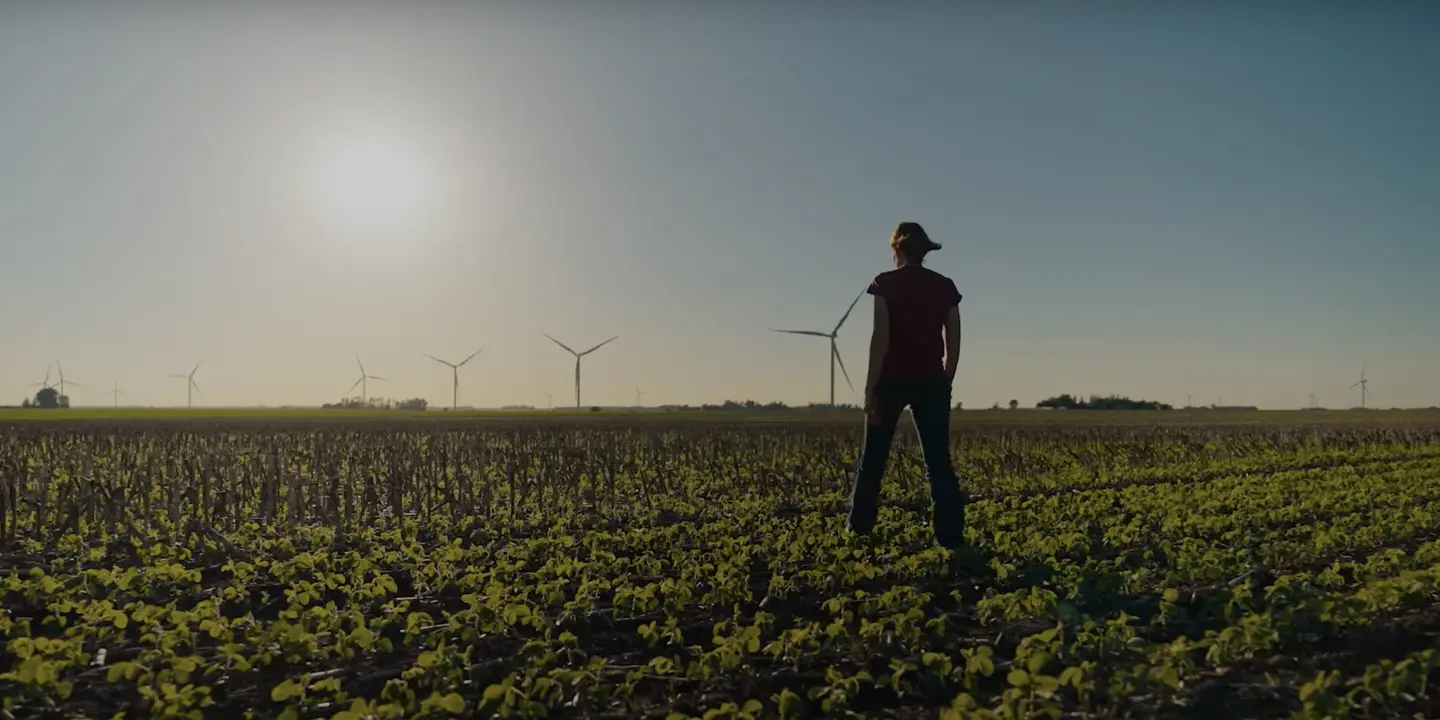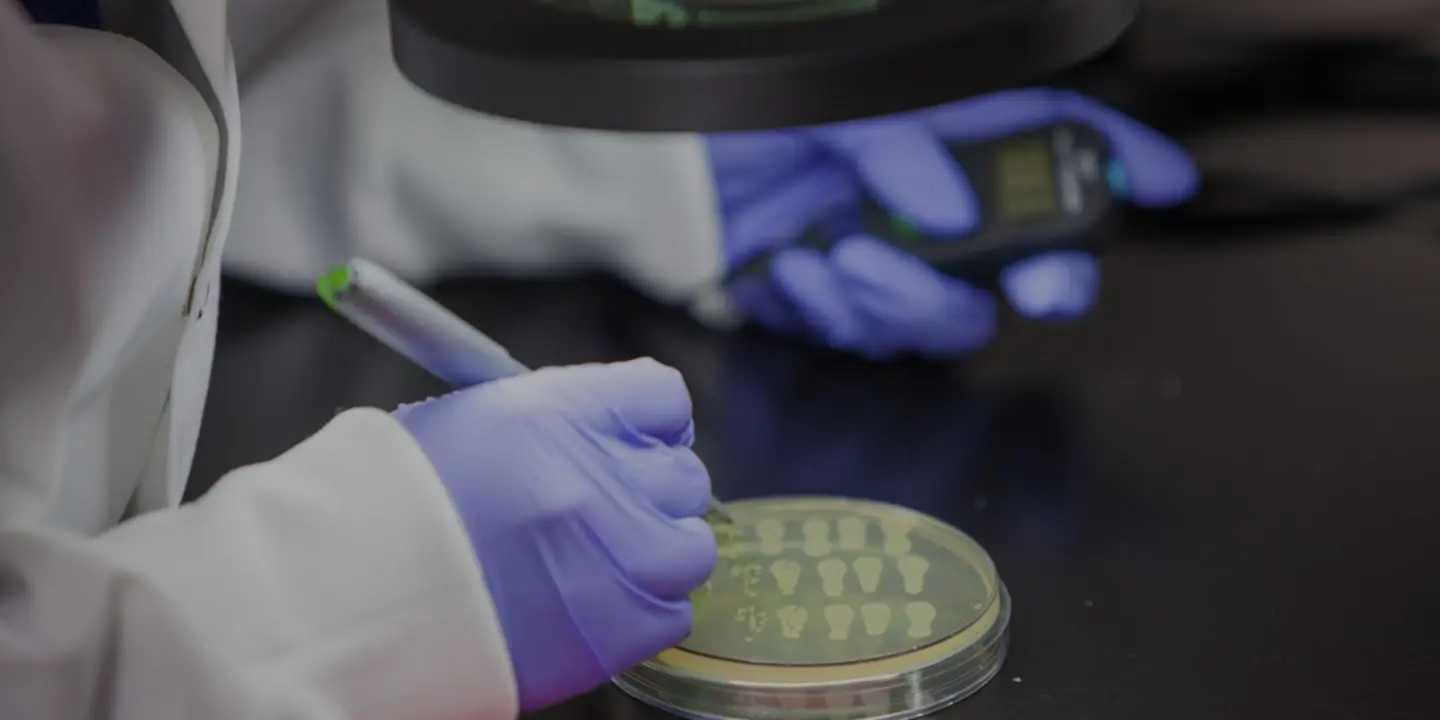Sustainability & Impact
A Promising Climate Solution
Growing crops to sustain billions more people and reducing emissions are among the grand challenges of our time. Key to both is nitrogen: nitrogen fertilizers are essential to generate the crop yields we can’t live without; yet they also lead to greenhouse gas emissions and reduce water and air quality.
Pivot Bio is a solution at this intersection. It’s what future-positive agriculture means to us: helping farmers grow the crops the world needs, reliably and sustainably, in the face of increasing volatility.
Pivot Bio’s Impact

Nitrogen pollution is a critical environmental challenge because it impacts so many areas: air and water pollution, biodiversity loss, ozone layer depletion and human health. The glass-half-empty view is that it makes all of these worse. The glass-half-full view is that if we better manage our relationship with it, the positive impacts are far-reaching. Dr. David Kanter, Associate Professor of Environmental Studies, New York University
Building A Nitrogen Plan Is Complex
The type of nitrogen that’s used and when it is applied makes a difference to the environment and a farm’s performance.
How Pivot Bio Is Transforming Nitrogen Production
Pivot Bio’s microbes are produced through fermentation and are easy to transport, eliminating complexities within the traditional nitrogen supply chain.How Pivot Bio Improves Grower’s Nitrogen Use Efficiency
By harnessing the power of purpose-built microbes to deliver nitrogen to plants when and where they need it, Pivot Bio can help improve the efficacy of growers’ total nitrogen plans.
As a mom, a farmer, and a Pivot Bio employee, I believe that committing to always doing things a little bit better—not just for us, but for our environment and our community—is the only way to live. My husband, Ryan, and I farm in Marshall County, Iowa. We grow primarily corn, but we also raise hay, feeder cattle, and, our most important crop: our two kids. Amanda De Jong
Rhodes, Iowa, Eden Ridge Farms
Farmer Profile: Eden Ridge Farms
Driven to do things a little bit better, each year, for their most important crop: their two kids.Farmer Profile: Titman Farms
Keep the generations going: how the Titman’s think about farming and family.Our Mission
Our mission: serve farmers with a more consistent, reliable, and weather-proof nitrogen while improving the environment.Culture of Innovation
Pivot Bio puts farmers at the center of its innovation agenda.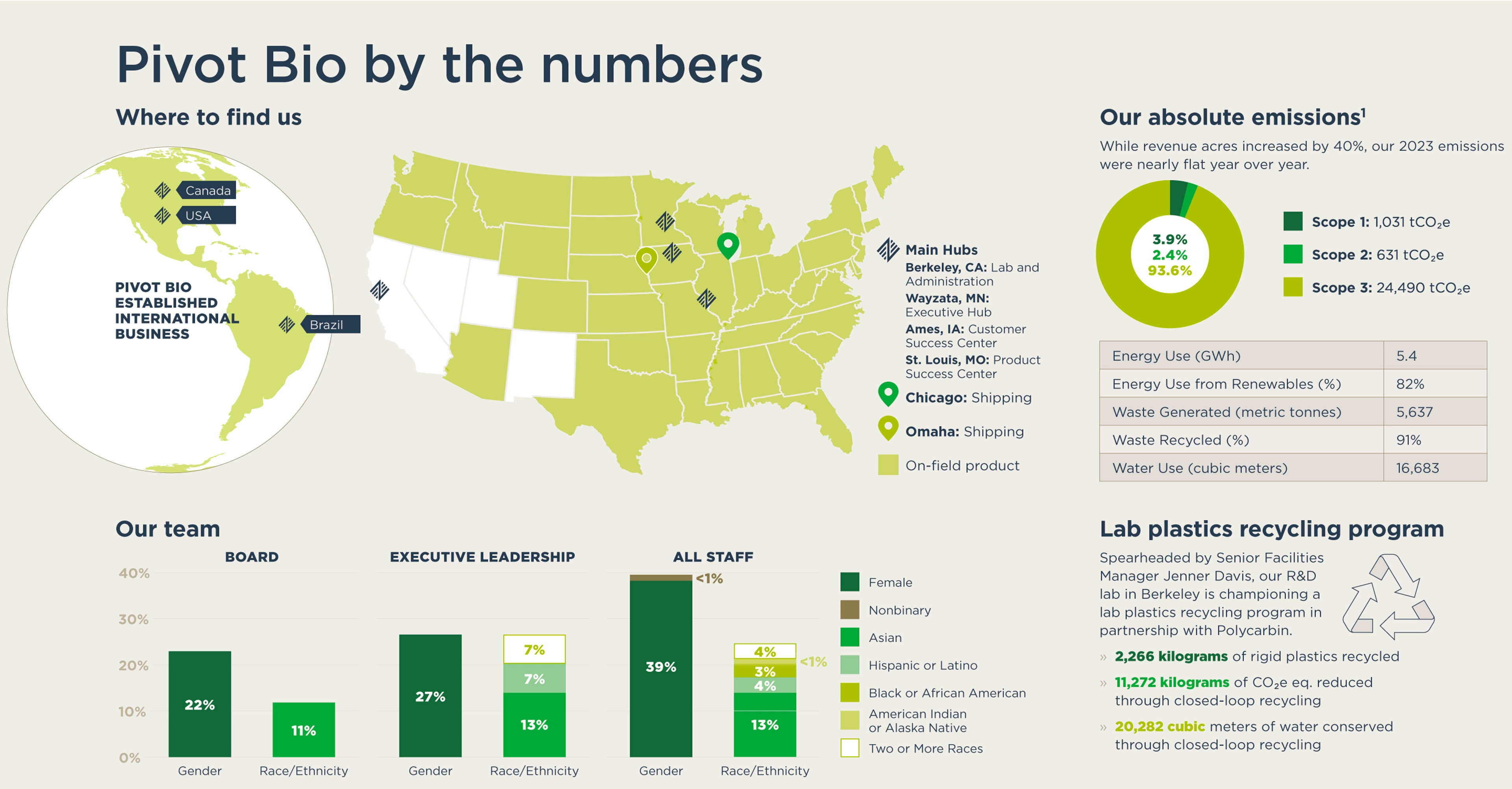
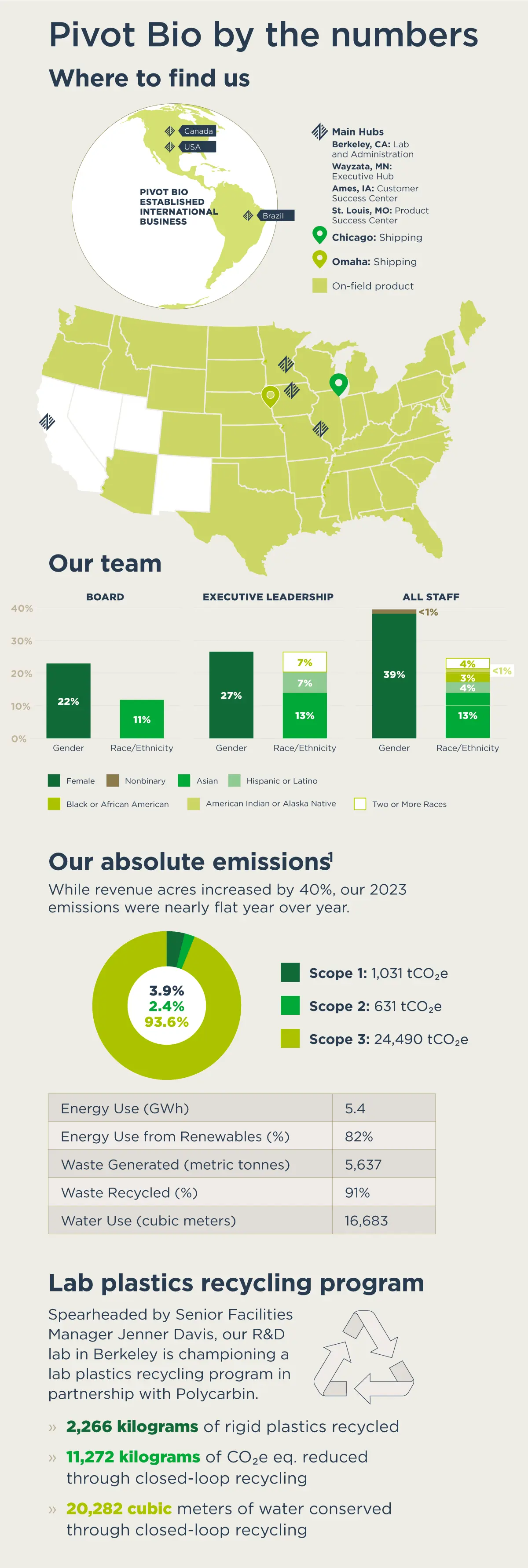
2022 Impact Report
Our inaugural impact report looked at the importance of nitrogen and the need for the world to evolve the way we think about it.
Download2023 Impact Report
In our 2023 report, we explored how adding Pivot Bio’s microbes to a grower’s operation can help build resilience, improve performance, boost soil health, and protect our air and water.
Download
Global Opportunities, Global Solutions
Farmers across the globe rely on nitrogen to deliver the yields necessary to sustain the food supply. Yet synthetic fertilizer is inaccessible to much of the world due to its supply chain infrastructure and high cost.
We’re committed to creating a more equitable nitrogen landscape for growers globally. Unlike synthetic fertilizer, microbial nitrogen can be manufactured domestically within any country. Microbial nitrogen also has a 1,000 times weight reduction compared to the fertilizer it replaces, a game changer for the supply chain. With more affordable, more accessible nitrogen—nitrogen whose price isn’t dictated by fossil fuel volatility or global shocks to supply chains—we can change the way our world grows food.
As we look forward, we will continue to expand our commercial registration into other countries where agriculture contributes to 33% of GDP and employs more than 40% of the total population.

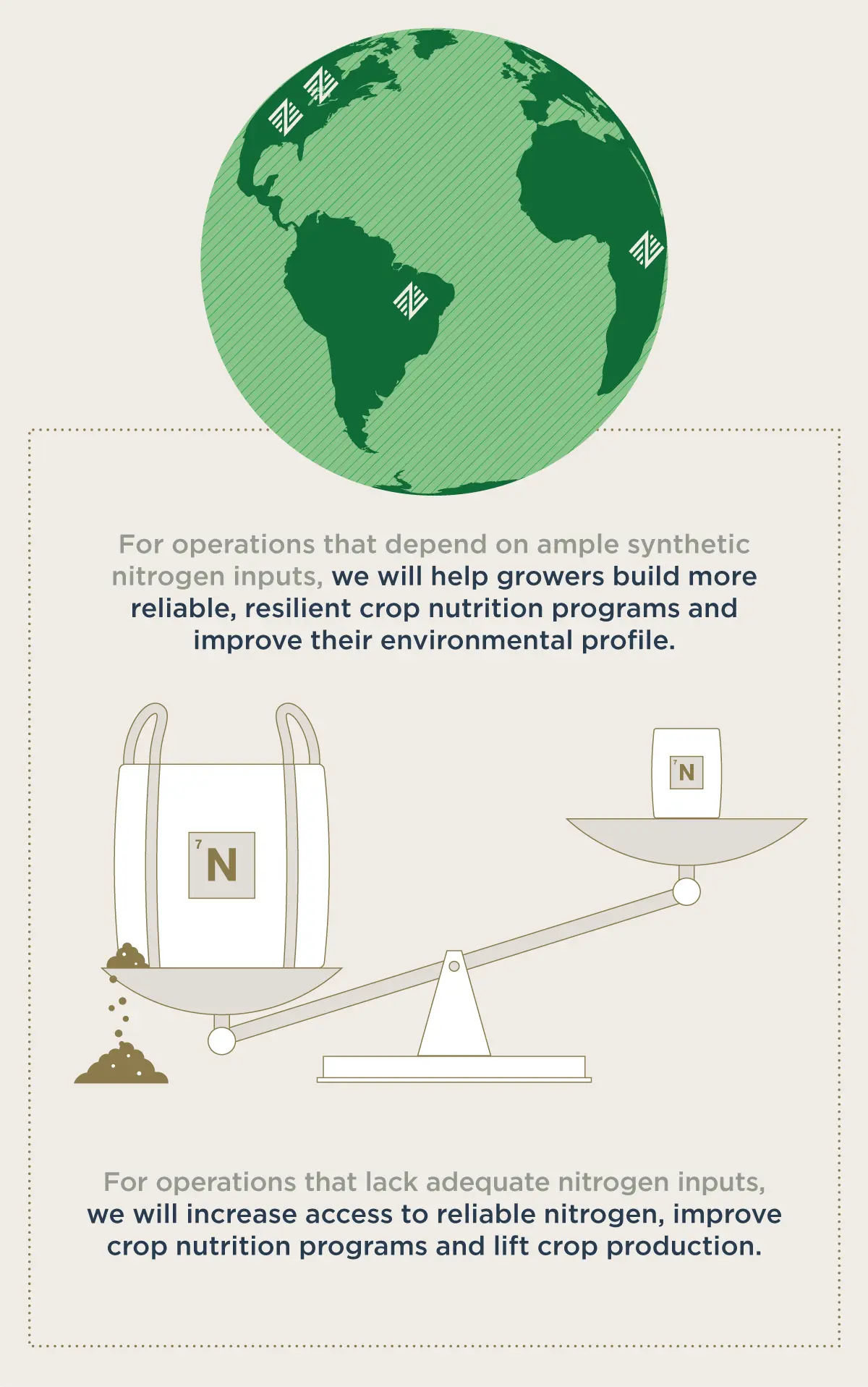
Transforming Ag Is A Team Sport
Thank you to our customers, reps, employees, and partners who made this impact possible.
Our Technology
Pivot Bio’s technology meets the demand for nitrogen consistency and dependability. Unlike synthetic nitrogen, our microbial nitrogen stays at the root, delivering nitrogen to crops, all season long, across all growing regions and weather.
Learn MoreA Better Nitrogen
When farmers replace a portion of their traditional nitrogen with Pivot Bio’s more predictable microbial nitrogen, they help preserve our soil, air and water for the next generation of farmers.
Learn More
